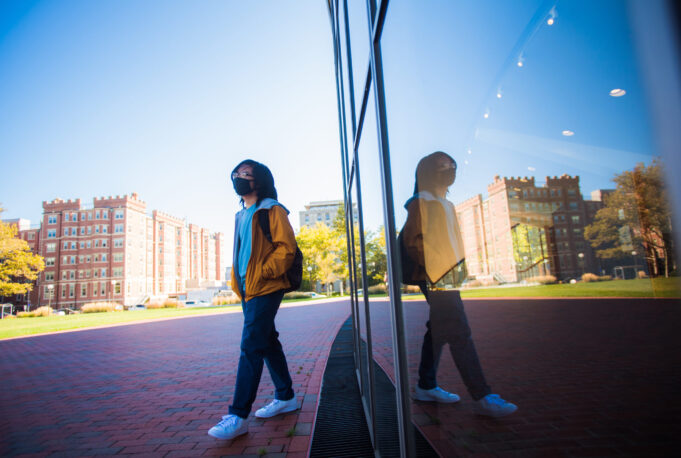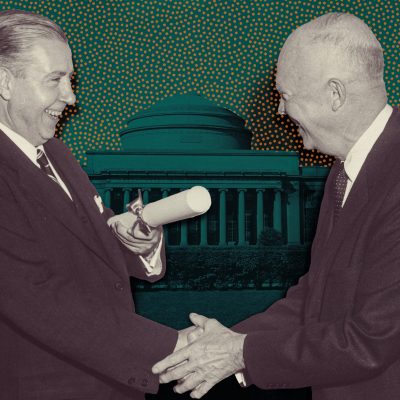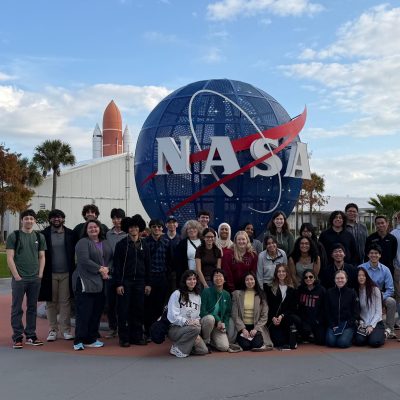
Sharing stories of resilience
The rigors of an MIT education inevitably lead to academic setbacks. Now, students are also navigating the social isolation of remote learning compounded with the stress of a global pandemic and tense political climate.
On Jan. 21, MIT students gathered virtually for a screening of the “Flipping Failure COVID Stories,” followed by a moderated panel discussion with their filmmaking peers. In the independently-produced short films, the students document the internal struggles that they are dealing with during the pandemic.
The first-time filmmakers expressed a shared — but often unspoken — experience of feeling inadequate or “stuck” when measuring themselves against their ambitions or expectations. However, through the creative process of transforming their self-observations into art, they furthered their journeys toward self-acceptance and self-compassion, while normalizing the experience of struggling for their peers.
Lulu Tian, a junior in MIT’s Department of Brain and Cognitive Sciences (BCS), captures her transition from living on campus to at home with her family in her film “Re-remembering.” She sets her experience of reconnecting with herself against a backdrop of uncertainty surrounding the pandemic. In a familiar scene, a family member cooks while Anderson Cooper announces that the crisis “might get worse before it gets better” on a nearby screen.
“This is what it feels like to start again,” narrates Tian, as she chips off dried paint from a palette to revisit painting as a creative outlet. Painting is also used as a visual metaphor for creative ambition in another short, “Loop(s),” by Maia Campbell, a fellow junior in BCS. She narrates over a time-lapse of her artwork, “Imagine if I were to really work on something for a long time in a meaningful way. What would that thing be that I create?”
Both students express a value embedded in MIT’s culture, as emblematic as its beaver mascot: the drive to build and create something impactful. Still, this aspiration can become a stressful expectation that students impose on themselves during a time when they, and the world, are living through a pandemic.
Whether students frame their academic or personal outcomes as “failures” hinges on their perspective. Campbell considers the tension between her feelings of guilt over the paralysis she feels during the pandemic and the self-compassion she knows she should be practicing. “I feel like it’s advice that I give, but I don’t follow,” she says.
Andy Haupt, a PhD student in the MIT Institute for Data, Systems, and Society, similarly gave voice to the social isolation and indecision experienced by many students indefinitely relocated off-campus in the film, “Feeling Stuck… A Bit.” “I find art a great language to express things and to understand things which are hard to understand,” he says. “I wanted to make a video about my struggles and my experiences through the time of Covid.”
The short films provide insight into how students can adapt to a pervasive disruption. In the panel discussion following the screening, Haupt reflected on how he coped with his loss of agency in one area, where he lived and worked, by focusing instead on the importance of who he worked with and other positive aspects of his graduate experience. Others reflected that the setback prompted them to reconnect with their values and find more space for themselves.
Stories of resilience
“The COVID Diaries” are the most recent contribution to the Flipping Failure initiative, a collection of stories told by undergraduate and graduate students about their journeys toward academic resilience and self-acceptance at MIT. The initiative is facilitated by MIT’s Teaching + Learning Lab (TLL), which is interested in humanizing experiences of academic struggle and sharing student’s coping strategies.
Viewers may find that they have experienced similar challenges: questioning their abilities after under-performing on an exam, managing work overload, or struggling to find their academic or career path. The site aims to highlight that, while one might feel alone in their struggle, MIT peers may have experienced related difficulties, too. Students also share positive coping strategies, such as how to adopt a growth mindset, reframe negative thoughts, improve studying strategies, build a support network, and elicit guidance from mentors.
“The student contributors to Flipping Failure are an amazing group. As we constantly see with MIT students, they have such a strong desire to help their peers. To put their stories out there — to show that kind of vulnerability — is so brave,” says Dipa Shah, senior associate director in TLL.
Through their vulnerability, student contributors hope to provide the reassurance needed for others to persevere through similar challenges. “It made me think deeply about how important it is to be open about our struggles and failures so that those going through those same periods of self-doubt do not feel like it is unique to them,” says contributor Jennifer Cherone, a PhD student in the Department of Biology.
Shedding the stigma
Research indicates that students’ beliefs about the nature of intelligence and ability significantly shape their response to academic challenges. Students who adopt a growth mindset allocate more effort, experiment with new approaches, and actively seek feedback.
“Struggle comes as a result of learning and growing, and is how we build resilience,” says Lourdes Aleman, associate director in TLL. “Many MIT students encounter their first real academic struggles at MIT, which often results in feelings of inadequacy. Often, students incorrectly assume they are the only ones struggling and experience shame and stress as a consequence.”
To foster a more growth-minded culture for students, Flipping Failure aims to “flip” the conversation that labels academic setbacks as failures and re-frame them as an expected part of the human experience. Such a paradigm shift can improve students’ academic experiences and help alleviate related stress.
The process of contributing to Flipping Failure is itself transformative for students. In creating a safe space for exchanging stories of the academic challenges they have faced and their learning experiences, student contributors quickly become aware they are far from alone.
“The Flipping Failure project has helped me reflect on my experiences, vocalize and internalize the lessons learned from these experiences, and understand how my different strategies and techniques string together to help me become more accepting of myself,” says contributor Kanika Gakhar SM ’20, who recently graduated with a master’s degree from the Department of Aeronautics and Astronautics. “By sharing my experience and strategies, I can forgive myself a little more and find comfort in knowing that not only am I learning from my failures, but so are others.”
One MIT
Members of the MIT community have a history of supporting each other and contributing to a positive culture for growth. The Flipping Failure project was inspired by past resilience-building projects within our community, such as Portraits of Resilience, as well as similar initiatives at peer institutions.
Flipping Failure also complements more recent efforts on campus to help students manage and overcome setbacks, such as FAIL! and the Undergraduate Association’s MIT I Messed Up events.

